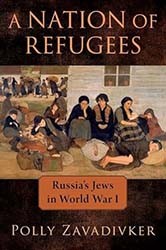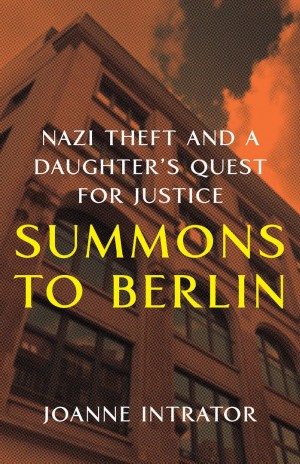This informative, fast-paced historical fiction is the third book of the The Gilded City trilogy, yet it easily stands alone. Set during World War I, “the war to end all wars,”Over There moves between New York City, pastoral upstate New York, Paris, and the trenches at the French front. The novel takes its title from the 1917 patriotic war song ”Over There” by George M. Cohan.
The story is told in the voices of four characters from the previous novel in the series, Threadbare. Some chapters are about Hannah, a mother and the head of the obstetrics department at Mount Sinai Hospital. Her husband, Ben, the chief medical officer and highly experienced surgeon at Mount Sinai, enlists and serves at the rapidly growing American hospital in Paris. He devises a process to save as many viable limbs in the field as possible rather than automatically amputating. He eventually specializes in multiple lengthy operations needed for traumatic head and face wounds.
Miriam, Hannah’s niece, is a passionate and consistently active nurse at Beth Israel, despite needing to wear a leg brace after contracting polio. Miriam recently married Dr. Eli Drucker, a rising star surgeon at the same hospital who volunteers his talents to the war effort and is sent to mobile hospitals near the trenches. Medical staff drastically leave in droves to serve overseas. Hannah stays in New York, caring for her children and patients for long hours. She feels responsible for her niece Miriam, who begins scheming to go to France in order to serve her country more meaningfully, and to be closer to Eli. Meanwhile, a new influenza is attacking at the front and reaching back home.
Tillie, a protagonist of Threadbare, is based on the author’s grandmother. In this book, Tillie appears as Hannah’s recently deceased older sister and Miriam’s mother. Her strong personality and ambition as a woman ahead of her time greatly influence Hannah and Miriam.
Over There discusses politics and financial challenges between the military and its physicians, between the needs of doctors serving the war effort while funding is needed for the hospitals in New York City to progress. The author pays great attention to the particular challenges of surgery in the field. The medical staff and soldiers persist while faced with understaffing, exhaustion, and disease. Rubin examines both their trauma and that of their families awaiting their uncertain return. In particular, she focuses on the Jewish American population who helped defeat Germany in the Great War.
This is a highly recommended read, whether as a stand-alone or as the conclusion of Rubin’s series. The author well conveys the misery of war as well as the sparks of humanity, care, and hope that can exist during the most difficult of times.
Miriam Bradman Abrahams, mom, grandmom, avid reader, sometime writer, born in Havana, raised in Brooklyn, residing in Long Beach on Long Island. Longtime former One Region One Book chair and JBC liaison for Nassau Hadassah, currently presenting Incident at San Miguel with author AJ Sidransky who wrote the historical fiction based on her Cuban Jewish refugee family’s experiences during the revolution. Fluent in Spanish and Hebrew, certified hatha yoga instructor.





